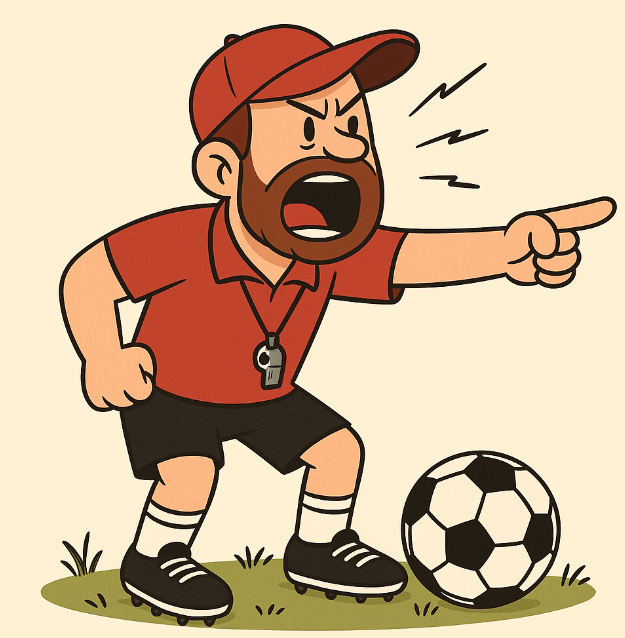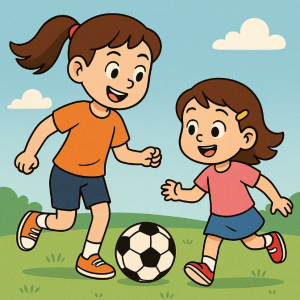
When Tough Coaching Breaks Kids Down
One out of every four young athletes reports experiencing verbal abuse from a coach. Let that sink in—25% of kids who lace up their shoes for practice are told they’re “stupid,” “worthless,” or humiliated in front of teammates.
For decades, many adults excused this as “tough love” or “building resilience.” But new research shows that harsh coaching doesn’t toughen kids up—it breaks them down, eroding their mental health, motivation, and even their love for the game.
And here’s the kicker: burnout from abusive supervision isn’t just about sports. It bleeds into school, friendships, and family life.
The Science Behind Burnout in Kids
Researchers in China studied more than 300 student-athletes, looking at how abusive supervision by coaches affects mental health. They drew on Self-Determination Theory, a psychological framework that says kids thrive when three needs are met:
- Autonomy: the ability to make choices
- Competence: the feeling of being good at something
- Relatedness: the sense of being respected and connected
Abusive coaches crush all three: they strip away choices, undermine confidence with criticism, and break down trust. The result? Burnout—a toxic mix of exhaustion, loss of motivation, and feeling like nothing they do is good enough.
Why Relationships Matter More Than Wins
The research also found that the quality of the coach–athlete relationship is the single biggest buffer against burnout.
- When kids trust their coach and feel respected, they are more likely to bounce back from challenges.
- When trust is eroded, every practice feels heavier, every mistake feels crushing.
Think of it like a classroom: a strict teacher who still shows respect and care can push kids to grow. But a teacher who mocks or humiliates? That’s not discipline—it’s destruction.
Trust: The Secret Weapon
Here’s an unexpected twist: not all trust is equal.
- Cognitive trust—believing a coach knows what they’re doing—helps kids tolerate tough feedback.
- Affective trust—feeling the coach genuinely cares—didn’t buffer kids as much in this study.
That doesn’t mean caring doesn’t matter—it does. But it highlights how kids often frame harshness differently if they believe the coach is competent and has their best interest at heart.
From the Locker Room to the Classroom
While this study focused on sports, the lessons echo across schools. Teachers, counselors, and administrators also walk a fine line between discipline and abuse.
- A teacher who gives hard feedback while offering guidance can help kids grow.
- A teacher who mocks mistakes or dismisses effort risks pushing students into academic burnout.
And for kids who already juggle pressures—exams, family stress, social media—the added weight of an unhealthy adult relationship can be the breaking point.
Why This Matters for Parents and Schools
Burnout in young people isn’t just about “quitting a sport” or “giving up on a subject.” It’s tied to depression, anxiety, and long-term disengagement from learning.
For parents: Watch for signs—fatigue, irritability, loss of interest in things they used to love. Ask how practices or classes feel emotionally, not just how they’re performing.
For schools and athletic programs: Train coaches and teachers not just in skills, but in relationship-building. Accountability systems should be in place to prevent and respond to abusive supervision.
For communities: Celebrate coaches and teachers who inspire without humiliating. Spotlight relational leadership, not authoritarian control.
Practical Takeaways
- Redefine “tough.” Being demanding doesn’t require being demeaning.
- Prioritize relationships. Respect and communication matter as much as drills and lessons.
- Build trust. Kids are more resilient when they believe their leaders are competent and fair.
- Advocate for policy. Push schools and leagues to adopt zero-tolerance policies for abusive supervision.
Let’s Talk About It
Every parent, teacher, and coach has a role to play in shaping environments where kids can thrive.
💬 What’s the biggest mental health challenge you see in schools today?
💬 How can schools better support students’ emotional well-being?
💬 What’s one insight from school psychology that’s changed the way you parent or teach?
Drop your thoughts below—or share this post with someone who needs to read it. Together, we can raise resilient, confident, and emotionally healthy kids.



